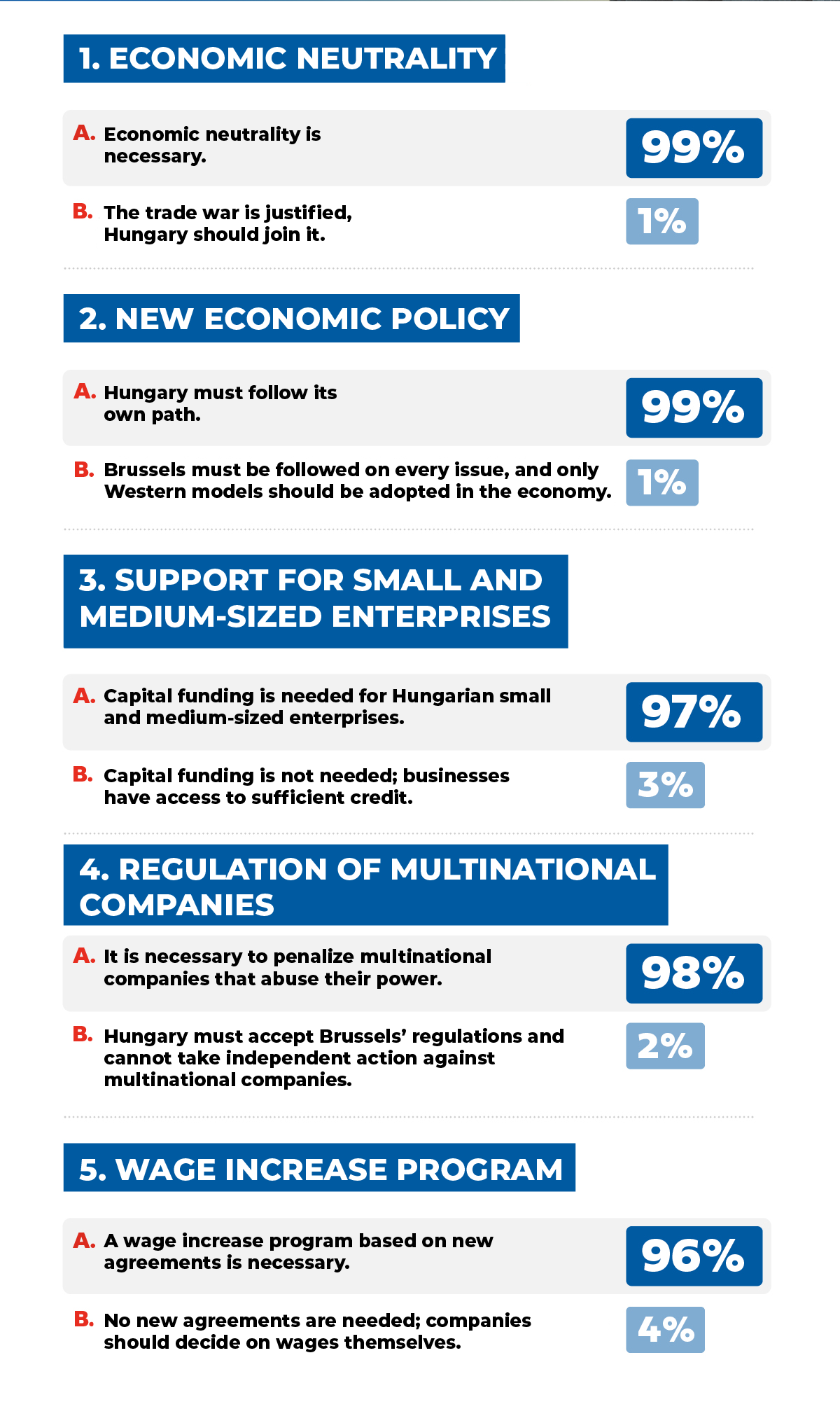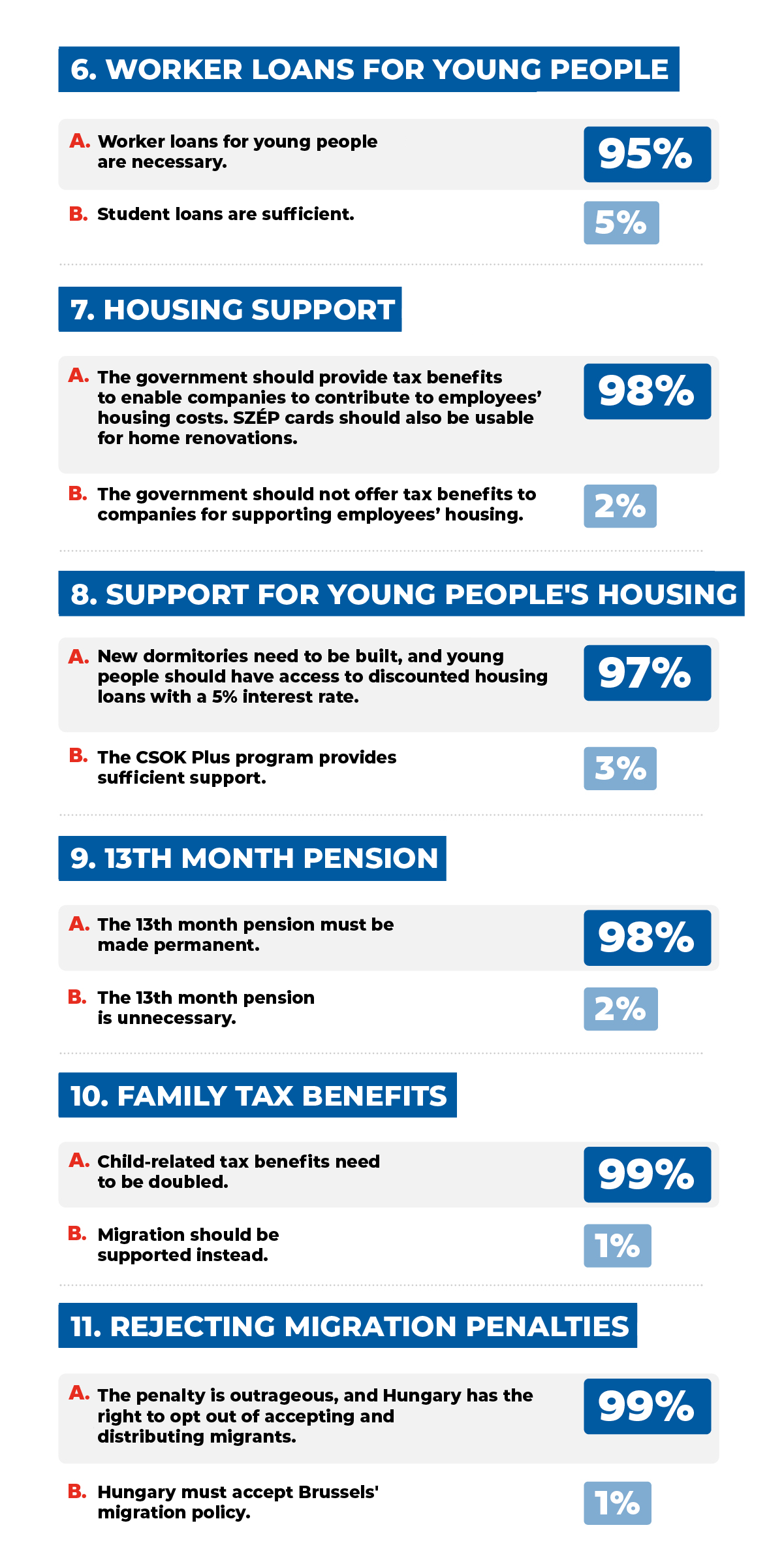This consultation focused on 11 key areas, including economic self-reliance, tax policies, and social support systems. The results affirm the public’s trust in the government’s ability to address these priorities and lay the foundation for Hungary’s economic future.
National consultation confirms national priorities for economic reform
The latest national consultation has concluded as one of the most successful in Hungary’s history, with over 1.35 million participants sharing their views on critical economic policies and reforms. The responses reflected overwhelming support for the government’s proposals, providing a strong mandate to proceed confidently with planned initiatives for 2025.

The government remains steadfast in its commitment to protecting Hungary’s sovereignty, particularly in the face of external pressures. Whether it involves tax policies, energy pricing, or maintaining low personal income tax rates, the consultation results have made it clear that these values must be safeguarded.
The consultation revealed that 99 percent of participants agreed that Hungary should prioritize economic neutrality over engaging in economic conflicts. Similarly, 99 percent supported the idea that Hungary should follow its own path in economic policymaking, rejecting the notion of adhering solely to Western economic models proposed by Brussels.
To support the nation’s small and medium-sized enterprises (SMEs), 97 percent of respondents endorsed capital grants for these businesses, recognizing their vital role in economic growth. In addition, 98 percent supported stricter regulation of multinational corporations that misuse their market power, emphasizing the importance of protecting local businesses and consumers.
The government's initiatives align closely with these sentiments. The “Workers’ Loan” program now offers interest-free loans to young professionals, and the Sándor Demján Program allocates substantial financial resources to SMEs. Additional measures, such as increased family tax allowances starting in June and the upcoming 13th-month pension, underscore the government’s dedication to supporting families, the workforce, and pensioners alike.

Hungarians voiced strong support for programs aimed at improving the financial stability of families and workers. For example, 99 percent agreed with doubling child tax allowances, highlighting the public’s desire for robust family support policies. Meanwhile, 96 percent backed the introduction of a wage increase program based on new agreements, underscoring the need for policies that ensure fair compensation for workers.
Housing support also emerged as a critical priority. A resounding 98 percent of participants agreed that the government should provide tax incentives to companies to help with employees' housing costs and allow the use of SZÉP cards for home renovations. Moreover, 95 percent supported the introduction of targeted loans for young professionals to enhance their housing opportunities.
Consulting citizens is essential to good governance. The government views public feedback as a cornerstone of decision-making, ensuring that national priorities align with the people’s will. This consultation reaffirmed that Hungarians stand with the government in protecting national sovereignty and pursuing economic independence.
The overwhelming participation demonstrates that citizens care deeply about shaping the nation’s future, even between elections. The government values these consultations as both a decision-making tool and a reflection of its commitment to working hand-in-hand with the public.
The results of this consultation will serve as a blueprint for transformative reforms in 2025. The government is dedicated to advancing Hungary’s economic growth and safeguarding the values and policies that ensure the nation’s self-reliance and prosperity.
